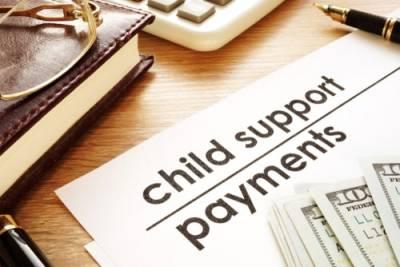Recent Blog Posts
Do Parents of a Breastfeeding Newborn Still Share Parenting Time?
 Parents who are divorced, legally separated, or who have never been married need to create a parenting plan for shared children under age 18. Older children, who are more independent, are often easier to make flexible arrangements for. Younger children require more attention and care, but as long as they have what they need, they can transition well between their parents’ homes. For newborn babies and very young children, however, moving between houses can prove quite difficult. Although Illinois law gives no automatic preference to either parent, there is no question that newborn infants are primarily dependent upon their mother for constant care, especially when it comes to the issue of breastfeeding.
Parents who are divorced, legally separated, or who have never been married need to create a parenting plan for shared children under age 18. Older children, who are more independent, are often easier to make flexible arrangements for. Younger children require more attention and care, but as long as they have what they need, they can transition well between their parents’ homes. For newborn babies and very young children, however, moving between houses can prove quite difficult. Although Illinois law gives no automatic preference to either parent, there is no question that newborn infants are primarily dependent upon their mother for constant care, especially when it comes to the issue of breastfeeding.
Can a Father Get Shared Custody of an Infant?
When most parents speak of “shared custody,” they mean both decision-making authority and the right to spend time with their child. In Illinois, these terms are distinct as known as “parental responsibilities” and “parenting time,” respectively. While parents of an infant may easily share parental responsibilities, sharing parenting time can prove trickier.
Who Pays For School Supplies After a Divorce?
 As divorced parents all over Illinois prepare to send their children back to school, inflation has caused the prices of many school goods to increase substantially. When backpacks, pencils, and textbooks cost as much as 15 percent more than they did last year, even the basics can be hitting parents’ wallets hard. This might raise an awkward question: Who is responsible for paying for school supplies when parents are divorced?
As divorced parents all over Illinois prepare to send their children back to school, inflation has caused the prices of many school goods to increase substantially. When backpacks, pencils, and textbooks cost as much as 15 percent more than they did last year, even the basics can be hitting parents’ wallets hard. This might raise an awkward question: Who is responsible for paying for school supplies when parents are divorced?
Does Child Support Cover School Expenses?
During a divorce, appropriate child support payments are calculated using the Illinois income shares method. Using the incomes of both parents, the time each child spends with each parent, and each child’s legitimate needs, child support payments are set and cannot be changed without proving a substantial change in circumstances.
The everyday costs of raising a child are considered part of the child support equation. This includes clothes, food, extracurricular activities, and educational supplies. The parent who has the majority of parenting time should be receiving enough child support to cover the cost of school supplies each year.
Three Things to Do Before You Travel Internationally With Your Child
 Today more than ever, families are made up of parents who were born in different countries. On top of that, the ease of international travel makes divorced parents traveling out of the United States with underage children a very common occurrence. But in the bustle of preparing for a long journey, parents often do not think about what they need to do before leaving the country with a child after divorce. To avoid any legal complications that could prevent you from leaving the country, it is essential to do these things before leaving the U.S. with your child.
Today more than ever, families are made up of parents who were born in different countries. On top of that, the ease of international travel makes divorced parents traveling out of the United States with underage children a very common occurrence. But in the bustle of preparing for a long journey, parents often do not think about what they need to do before leaving the country with a child after divorce. To avoid any legal complications that could prevent you from leaving the country, it is essential to do these things before leaving the U.S. with your child.
Get Your Child’s Passport
Regardless of the parents’ relationship status, all children under the age of 16 must have both parents’ authorization to get a passport. This may require both parents to be present at the passport meeting, although getting a signed permission form may also be possible. If just one parent has parental responsibilities, or if one parent has had their parental right terminated, the parent with authority over the child must prove there is not another parent who needs to give their consent. Passports for children are only valid for five years, so if you already have passports, be sure to check the expiration date. Many countries will not let visitors enter if their passport expires within six months.
Can an Illinois Judge Punish a Spouse Who Hides Assets During Divorce?
 While divorce is never pleasant, most divorces are able to proceed without extensive conflict between spouses. A couple’s assets are divided fairly, using mediation or collaborative divorce if necessary, and both spouses go on to live their separate lives. In some cases, however, a spouse will try to get the upper hand by deceiving their spouse and the court about the true value, location, or nature of their assets.
While divorce is never pleasant, most divorces are able to proceed without extensive conflict between spouses. A couple’s assets are divided fairly, using mediation or collaborative divorce if necessary, and both spouses go on to live their separate lives. In some cases, however, a spouse will try to get the upper hand by deceiving their spouse and the court about the true value, location, or nature of their assets.
To the spouse on the receiving end of this behavior, it can feel deeply unfair and frustrating. And without knowing how to access better information about the assets, it can be difficult to bring the dishonest to a judge’s attention. Fortunately, a spouse who gets caught hiding assets during divorce can face serious consequences. An experienced divorce attorney can help you bring asset hiding to a judge’s attention, as well as search for hidden assets with the help of appropriate professionals.
Can I Get Child Support If My Ex Left the United States?
 Although being a parent can be a warm, joyful experience, it also has its frustrations. One common scenario that many Illinois parents experience is the challenge of recovering child support from a former spouse or partner who feels no obligation to ensure their child is financially cared for. Of course, not only does this place the child at a disadvantage, but it also requires the parent receiving child support to work overtime just to get what they are legally due.
Although being a parent can be a warm, joyful experience, it also has its frustrations. One common scenario that many Illinois parents experience is the challenge of recovering child support from a former spouse or partner who feels no obligation to ensure their child is financially cared for. Of course, not only does this place the child at a disadvantage, but it also requires the parent receiving child support to work overtime just to get what they are legally due.
Some parents who do not want to pay child support will go so far as to leave the country to avoid their responsibilities. Other parents will get deported or move and simply stop making payments. If you find yourself confronted with the necessity of chasing your child’s other parent across the globe to get child support, read on.
Are Parents in Other Countries Still Required to Pay Child Support?
Leaving the United States does not absolve a parent or his or her responsibility to pay child support. However, before any enforcement action can be taken, a legitimate child support order must be put in place by an Illinois court. Your child’s other parent does not have to be present for the order to be put in place, but without an order, the authorities cannot take action.
Should I File For Divorce if I Think My Spouse May Be Planning To Divorce Me?
 Maybe your spouse said something directly. Maybe it is only a hunch. Whatever your reason for suspecting divorce papers may be heading your way, it is common to feel panicked and unsure of which steps to take next. Having conflicting feelings is totally normal during the pre-divorce phase, but it is still important to strategize carefully so you do not end up at a disadvantage if your spouse does end up filing for divorce. If you are wondering whether you should file for divorce first, read on and then contact our excellent team of Cook County divorce attorneys.
Maybe your spouse said something directly. Maybe it is only a hunch. Whatever your reason for suspecting divorce papers may be heading your way, it is common to feel panicked and unsure of which steps to take next. Having conflicting feelings is totally normal during the pre-divorce phase, but it is still important to strategize carefully so you do not end up at a disadvantage if your spouse does end up filing for divorce. If you are wondering whether you should file for divorce first, read on and then contact our excellent team of Cook County divorce attorneys.
Can My Spouse File For Divorce Without Telling Me?
While it certainly does not feel good to be surprised by a knock on the door from a sheriff serving divorce papers, your spouse can file for divorce without telling you first. As long as one of you has lived in Illinois for at least 90 days, you can file for divorce under Illinois law. Your spouse does not even have to claim that you are at fault; “irreconcilable differences” is the only reason spouses can give for getting divorced in Illinois.
If I Made More Money in Our Marriage, Do I Get More in Our Divorce?
 Although it may not seem romantic, marriage is a financial partnership. This is never more clear than during divorce, when a couple who has combined their incomes and assets for years now has to split them up. The end of a marriage has major financial implications for both partners and it is natural to have many questions about what happens to your money in a divorce. One of the most common questions Illinois divorce attorneys get is whether a spouse who has made more money will get to keep more of the marital estate. In community property states, assets are divided 50/50; however, Illinois does things a little differently.
Although it may not seem romantic, marriage is a financial partnership. This is never more clear than during divorce, when a couple who has combined their incomes and assets for years now has to split them up. The end of a marriage has major financial implications for both partners and it is natural to have many questions about what happens to your money in a divorce. One of the most common questions Illinois divorce attorneys get is whether a spouse who has made more money will get to keep more of the marital estate. In community property states, assets are divided 50/50; however, Illinois does things a little differently.
How is Property Divided in an Illinois Divorce?
Illinois is a so-called “equitable division” divorce state, meaning that courts are more focused on determining whether an asset settlement is fair rather than exactly equal. Courts encourage couples to create asset settlements on their own, using the help of a mediator if necessary.
Three Tips for Preparing for a High-Conflict Divorce
 Many people avoid beginning the Illinois divorce process because they have such a contentious relationship with their spouse and they only anticipate things will get worse during the divorce. Unfortunately, bitter relationships rarely end with amicable divorces, and many spouses’ worst fears are confirmed once the divorce begins.
Many people avoid beginning the Illinois divorce process because they have such a contentious relationship with their spouse and they only anticipate things will get worse during the divorce. Unfortunately, bitter relationships rarely end with amicable divorces, and many spouses’ worst fears are confirmed once the divorce begins.
However, a great divorce attorney can help you get a fair divorce decree, even if your spouse is determined to hide marital assets, fight your claims for spousal maintenance, or argue over who should have custody of the kids. Here are three tips for preparing for a high-conflict divorce; read through them and then contact a divorce attorney with experience advocating for clients during contentious divorces.
Know Your Finances
What Can I Do if I Believe Someone Is Wrongfully Claiming I Am the Father?
 Someone contacting you to inform you that you are the father of an unplanned or unwanted pregnancy can be a shocking experience. While some men are excited to learn they are going to be a father, others are understandably upset to learn that someone is trying to hold them responsible for a child they do not want or do not believe is theirs. Being a father is a tremendous responsibility, both in terms of its ethical and legal implications. If you are being asked for child support and are skeptical of the claims about the child’s paternity, contact an experienced family law attorney who can help.
Someone contacting you to inform you that you are the father of an unplanned or unwanted pregnancy can be a shocking experience. While some men are excited to learn they are going to be a father, others are understandably upset to learn that someone is trying to hold them responsible for a child they do not want or do not believe is theirs. Being a father is a tremendous responsibility, both in terms of its ethical and legal implications. If you are being asked for child support and are skeptical of the claims about the child’s paternity, contact an experienced family law attorney who can help.
How is Paternity Established in Illinois?
Establishing paternity for a married couple’s child is simple: the husband is presumed to be the father. But if you are married and you suspect your wife may have conceived your child with another man, you can overcome the presumption that you are the father by requesting genetic testing that shows otherwise. Generally speaking, if there is any question about whether a man is a child’s father, genetic testing can be requested by either the mother or the presumed father or ordered by a court.
Feeling Stuck in a Rut After Your Illinois Divorce? Try These Four Tips
 Even in the most amicable divorces, the divorce process is not easy and it is normal to feel overwhelmed with emotions when the divorce is over. You may feel grief and relief at the same time, as well as periods when you vacillate between self-doubt and confidence that you made the right decision. Feeling and expressing these feelings is normal and healthy, but sometimes people get stuck in their grief and cannot process it in a healthy way. If you have recently gotten divorced or are considering divorce in Illinois, here are some tips to help you recover from the grieving period.
Even in the most amicable divorces, the divorce process is not easy and it is normal to feel overwhelmed with emotions when the divorce is over. You may feel grief and relief at the same time, as well as periods when you vacillate between self-doubt and confidence that you made the right decision. Feeling and expressing these feelings is normal and healthy, but sometimes people get stuck in their grief and cannot process it in a healthy way. If you have recently gotten divorced or are considering divorce in Illinois, here are some tips to help you recover from the grieving period.
What is Divorce Grief?
People are often ashamed to admit how much grief they feel after a divorce, especially if they initiated the divorce proceedings. But divorce is a tremendous loss in many ways - your identity, your relationship with your children, your community, and even your friends may be lost or dramatically changed. And, of course, your spouse is no longer part of the picture, making the future uncertain. Grief is a natural process that allows us to work through our feelings of loss and move forward into the next stage of our lives, ideally with some room in our hearts for new experiences.

















